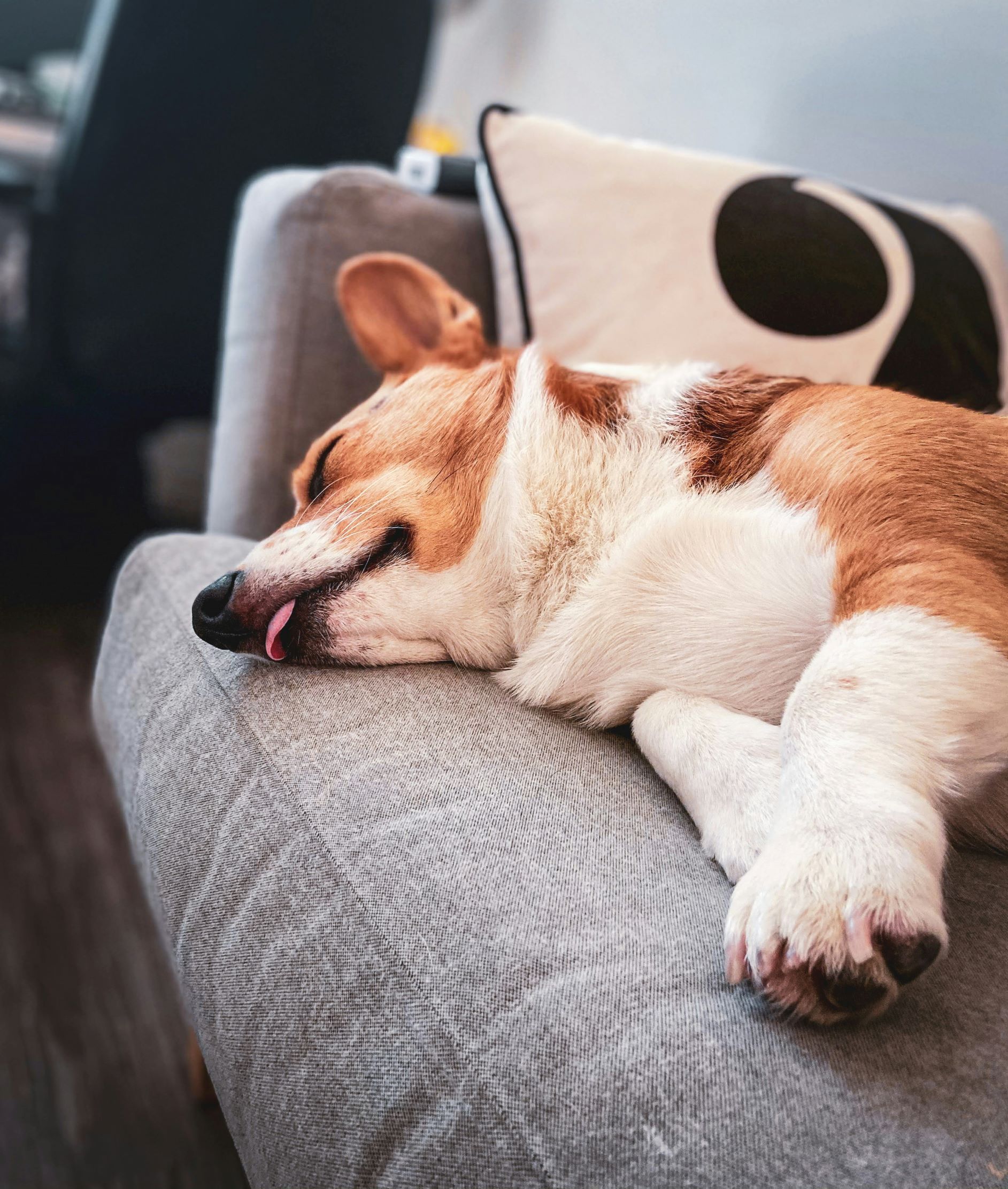
How Much Sleep Do Dogs Need? A Guide to Canine Slumber
Anyone who owns a dog knows they love their naps! But have you ever wondered why dogs sleep so much, how much sleep is normal for different ages and breeds, and how you can ensure your furry friend is getting the rest they need? In this blog, we’ll delve into the world of canine sleep patterns, telltale signs your dog might not be sleeping enough, and ways to create a sleep-supportive environment.
Why Dogs Need Their Sleep
Just like humans, dogs require ample sleep to function at their best. Here’s what happens during all those adorable snoozes:
- Physical Restoration: Sleep allows a dog’s body to repair muscles, recharge their energy stores, and consolidate important bodily functions.
- Brain Power: Sleep plays a crucial role in learning, memory formation, and healthy brain development (especially in puppies).
- Emotional Well-being: A well-rested dog is happier, less irritable, and better able to handle stress.
- Strong Immune System: Proper sleep supports immune function, helping dogs to stay healthy and fight off illness.
How Much Sleep is Enough?
The amount of sleep a dog needs depends on several factors:
- Age: Puppies and senior dogs tend to sleep the most, often clocking in up to 18-20 hours a day. Adult dogs average around 12-14 hours but can vary based on breed and activity level.
- Breed: Energetic working breeds like Border Collies may need less sleep, while large breeds like Newfoundlands may be natural snoozers.
- Activity Level: A highly active, athletic dog will likely need more rest for recovery than a lap dog.
- Individual Differences: Some dogs are simply naturally inclined to sleep more than others.
Signs Your Dog Isn’t Sleeping Well
- Restlessness or Irritability: A sleep-deprived dog may have trouble settling down or exhibit grumpy behaviors.
- Frequent Accidents: Tired dogs may struggle with housetraining due to decreased focus.
- Lethargy: Excessive sleepiness during the day can signal a sleep quality issue.
- Health Concerns: Certain underlying medical conditions can disrupt sleep patterns. If concerned, consult your veterinarian.
What Do Dogs Do In Their Sleep?
Have you ever watched your dog twitch, whimper, or even “run” in their sleep? Here’s a glimpse into what’s happening in your pup’s dreaming mind:
- Dreaming: Yes, dogs dream! Like us, they process memories and experiences while they sleep, leading to those cute (and sometimes startling) sleep movements.
- Vocalizations: Whines, barks, or growls during sleep aren’t always cause for alarm. They’re likely just doggy dream chatter.
- Muscle Twitching: This is a normal part of the REM (Rapid Eye Movement) sleep cycle where vivid dreams occur.
Tips for Promoting Healthy Dog Sleep
- Comfortable Sleep Space: Provide a cozy, quiet bed in a temperature-controlled, distraction-free area.
- Consistent Routine: Stick to regular feeding, exercise, and bedtime schedules to help regulate your dog’s sleep-wake cycle.
- Sufficient Exercise: A tired dog is a sleepy dog! Aim for appropriate physical activity based on your dog’s age and breed.
- Mental Stimulation: Puzzle toys, training sessions, or a fun game of fetch also help tire out your dog’s brain, leading to better sleep.
- Manage Stress: Minimize stressors by providing a calming environment and addressing any sources of anxiety.
- Soothing Melodies: Consider playing calming music specifically designed for dogs. Studies suggest that calming dog music for sleeping can reduce anxiety and promote restful sleep in dogs. These playlists often feature gentle instrumental arrangements and slow tempos to help your dog relax and drift off to sleep.
- Veterinary Consultation: Rule out any underlying health conditions that could interfere with your dog’s sleep.
Helping Your Dog Sleep Through the Night
- Late-Night Potty Break: Offer a bathroom chance right before bed to prevent nighttime wake-ups.
- Crate Training: For puppies or anxious dogs, a crate can provide a sense of security and promote sleep.
- White Noise: Consider a white noise machine or fan to drown out potentially disruptive sounds.
- Natural Remedies: Discuss calming supplements like melatonin with your vet.
- Medication: For dogs with severe anxiety or underlying health conditions, your vet might prescribe medication to manage their sleep issues. Does your dog give you trouble when taking medicine? Read our guide on administering medicine to dogs, or check out our dog food seasoning that is perfect for administering medicine to dogs.
Other Resources:
Conclusion
Sleep is a cornerstone of canine health and well-being. By understanding your dog’s sleep needs and creating a supportive environment, you’ll set them up for a lifetime of happy, healthy snoozing.






